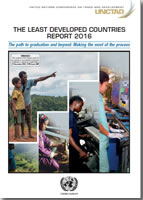Published on Wed, 2017-02-15 15:28
Austerity-related labour market reforms promoted by multilateral and regional financial institutions in many developed and developing countries have been shown to not help economies recover after crises, and have instead inflicted substantial harm on working people, which will be felt for many years. This is one of the main findings of the UN Independent Expert on the effects of foreign debt on the enjoyment of all human rights, Mr Juan Pablo Bohoslavsky (from Argentina), in his latest report to the thirty-fourth session of the UN Human Rights Council, which meets here from 27 February to 24 March. In his report, the rights expert observed that many States with unsustainable levels of debt or experiencing a financial crisis have implemented austerity policies and labour market reforms with a strong deregulatory impetus, either on their own initiative or at the behest of external creditors, including international or regional financial institutions. |
Published on Mon, 2017-02-13 16:00
On November 29, 2016, the Egyptian parliament approved the draft law regulating the activity of civil organizations and institutions submitted by MP Abdul Hadi al-Qasabi on September 6, 2016. This was tantamount to a declaration of war on civil society and an attempt to crack down on all active and supportive human rights organizations. For more than 20 years now, the state has been committing a number of practices aimed to suppress and restrict these organizations and their members, but the recent parliament decision surpassed all previous practices. |
Published on Thu, 2017-02-09 19:36
As the Ontario and Quebec governments design their versions of a basic income pilot program, Canadians find themselves engaged in a policy question we haven’t grappled with in almost half a century: how should the welfare state evolve? At the heart of the basic income debate is a discussion about what’s required for everyone to have a basically decent life. Implicitly, it embraces a conversation about the importance of markets in that pursuit. |
Published on Thu, 2017-02-09 16:59
The Trade and Development Board of UNCTAD on Monday held a discussion on the Least Developed Countries Report 2016 which amongst others had argued that graduation of the Least Developed Countries (LDCs) is "not the winning post of a race to cease being an LDC, but rather the first milestone in the marathon of development." The number of new countries becoming LDCs, the near doubling of the size of the group in the last 45 years in part reflects the small number of countries graduating out of the category - just four in the 25 years since the principle of graduation was established (Botswana in 1994, Cabo Verde in 2007, Maldives in 2011 and Samoa in 2014). |
Published on Thu, 2017-02-09 16:25
Sovereign debt restructurings, as can be seen from examples like Greece and Argentina, are difficult, often traumatic experiences for the sovereign debtor and its citizens. It is invariably the case that in a sovereign debt restructuring (SODR), the sovereign, because it either has lost access to financing or can only obtain it on more expensive terms, will be forced to reduce its expenditures in order to try and meet its renegotiated debt payments. |
SUSCRIBE TO OUR NEWSLETTER







